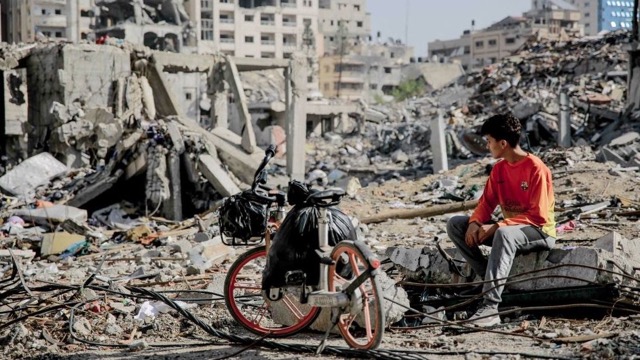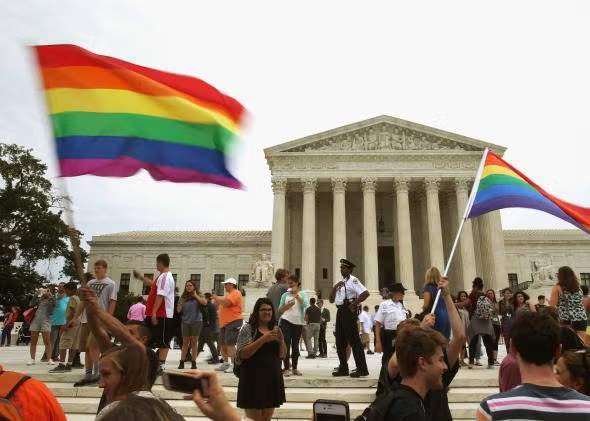On January 7, 2009, amidst Operation Cast Lead, I authored an article for *The Guardian* titled "How Israel brought Gaza to the brink of humanitarian catastrophe." This marked Israel's first significant military action against the Gaza Strip following its unilateral withdrawal in 2005. Since then, Israel has conducted several major offensives against Gaza, including in 2012, 2014, 2021, and 2022. Additionally, there were numerous smaller conflicts and nearly 200 deaths during the 2018 border protests, known as the March of Return. By my estimation, the ongoing conflict represents the sixth serious Israeli assault on Gaza and is the most deadly and destructive to date, raising fears of a second Palestinian Nakba.
Israel's assertion that it is merely exercising its right to self-defense is highly contested. Francesca Albanese, the UN Special Rapporteur on human rights in the occupied Palestinian territories, has highlighted that international law permits self-defense only in cases of armed attacks between states or threats from outside a state's territory. Since the Hamas attack originated from Gaza, which Israel still controls in terms of access by land, sea, and air, Israel's claim to self-defense is legally dubious. Under international law, an occupying power cannot claim self-defense against the territory it occupies. Instead, the occupied population, in this case, the Palestinians, has the right to resist, including through armed means.
The repeated Israeli assaults on Gaza reveal a deeply militaristic mindset and a persistent refusal to seek peaceful solutions. The frequent military operations, described by Israeli generals as "mowing the grass," aim to weaken Hamas, degrade its military capabilities, and disrupt its governance. This metaphor reflects a routine, mechanical approach to conflict that results in extensive civilian suffering and infrastructure damage. The term "mowing the grass" underscores a disheartening reality: without a lasting political resolution, future conflicts seem inevitable, driven by Israel's ongoing avoidance of diplomatic efforts and reliance on force.
Here's a rephrased version of the paragraph with added detail and examples:
The recent Israeli bombardment of Gaza is a direct reaction to the Hamas assault on October 7th, known as Black Saturday, which marked a dramatic escalation in the conflict. Unlike previous instances where Hamas had launched rockets into Israel or clashed with Israeli forces within the borders, the attack on October 7th involved a coordinated effort by Hamas and the more extreme group Islamic Jihad. They used bulldozers to breach the security fence surrounding Gaza, leading to a spree of violence against neighboring kibbutzim and settlements. The attack resulted in the deaths of approximately 300 Israeli soldiers and over 800 civilians, including 250 individuals attending a music festival. Additionally, the assailants took 240 hostages, some of whom were military personnel. This violent assault on civilians has been widely condemned as a war crime by international leaders.
The question of whether the Hamas attack was entirely unprovoked, as asserted by Israel and its allies, is complex. It did not occur in isolation but rather against the backdrop of 56 years of Israeli occupation of Palestinian territories—a period marked by extensive and often brutal military control. This occupation has involved daily violence against the people of the West Bank and Gaza Strip and frequent violations of their fundamental human rights.
Hamas should not be viewed simply as a terrorist organization, despite how it is often characterized by Israel and its Western allies. Rather, Hamas is a complex entity that functions as both a political party and a militant group. Its attacks on civilians are indeed acts of terrorism, but this view only tells part of the story. Hamas is deeply embedded in Palestinian society and represents a significant segment of its collective aspirations for freedom and self-determination.
The rise of Hamas can be understood in the context of the Palestine Liberation Organization's (PLO) perceived failure to secure Palestinian independence. The 1993 Oslo Accords marked a turning point, where the PLO recognized Israel in exchange for the promise of establishing a Palestinian state in the remaining 22% of historic Palestine, which includes the West Bank and Gaza Strip with East Jerusalem as its capital. However, these accords did not lead to the expected statehood and were seen by many as a failed compromise.
This disillusionment was exacerbated by political changes in Israel. After the assassination of Prime Minister Yitzhak Rabin in 1995, the right-wing Likud party, led by Benjamin Netanyahu, took power. Netanyahu's tenure has been marked by a persistent opposition to Palestinian statehood and a strategy of dividing Palestinian factions. In a 2019 speech, Netanyahu explicitly stated that supporting and strengthening Hamas was part of his strategy to prevent a unified Palestinian state. By isolating and weakening moderate Palestinian factions in the West Bank, Netanyahu inadvertently facilitated Hamas's rise as a significant political and militant force.
The 1988 Hamas Charter expressed strong anti-Semitic sentiments, rejected Israel's legitimacy, and called for establishing an Islamic state across the entire historic region of Palestine, famously referred to as "from the river to the sea." However, similar to the Palestine Liberation Organization (PLO) before it, Hamas began to moderate its stance over time. Realizing the moral and political failures of the suicide bombings conducted during the Second Intifada, Hamas shifted toward a more pragmatic approach. In January 2006, Hamas won a decisive victory in the Palestinian legislative elections, securing an absolute majority in both Gaza and the West Bank. This led to the formation of a new, more moderate government that proposed negotiating a long-term ceasefire with Israel, potentially lasting 20, 30, or even 40 years. Despite the Charter remaining unchanged until 2017, Hamas leaders publicly indicated a willingness to accept a Palestinian state based on the 1967 borders.
Israel, however, refused to recognize the newly elected Hamas government and rejected its offer to negotiate. This stance was supported by the US and the EU, which imposed economic sanctions intended to undermine the Hamas-led administration. The Western powers, while professing a belief in democracy, seemed reluctant to accept the outcome when Palestinians elected a party they deemed unacceptable. As Günter Grass put it, if the Israeli and Western governments were displeased with the Palestinian electoral choice, they might as well dissolve the electorate and elect a different one.
On February 8, 2007, with Saudi mediation, Hamas and Fatah, the rival Palestinian factions, reached an agreement in Mecca to end their internal conflict in Gaza and establish a government of national unity. This government included key posts such as foreign affairs, finance, and interior being held by independent figures. Both factions expressed their readiness to negotiate a long-term ceasefire with Israel. Yet, Israel continued to reject this unity government and its offers of negotiation.
Here's a rephrased and more detailed version of the paragraph:
The situation took a turn for the worse as Israel and the United States secretly collaborated with Fatah leaders and Egyptian intelligence agencies to destabilize the Palestinian national unity government. Their strategy aimed to overturn the results of the recent parliamentary elections by encouraging a coup within Fatah to regain control. In 2008, leaked memos from the Israel-Palestinian Authority negotiations exposed that Israel and the US had equipped and trained the security forces loyal to President Mahmoud Abbas with the intention of toppling the Hamas government. This plan was part of a broader conspiracy, revealed later in the "Palestine Papers," a trove of 1,600 diplomatic documents leaked to Al Jazeera, which detailed the involvement of American neoconservatives in provoking a Palestinian civil conflict.
In June 2007, Hamas preempted a Fatah coup by seizing control of Gaza in a violent takeover, leading to a divided Palestinian leadership with Fatah governing the West Bank and Hamas controlling Gaza. Israel's response was to label Gaza as a "hostile territory" and implement a range of measures to isolate and weaken Hamas. The most significant of these was a blockade that, while ostensibly aimed at preventing the flow of weapons to Hamas, also severely restricted the supply of essential goods such as food, fuel, and medical supplies to Gaza’s civilian population. This blockade was so stringent that even pasta was included in the list of banned items, a fact that shocked an American senator. The blockade extended beyond imports to include certain exports from Gaza, such as agricultural products and fish, raising questions about its true intent. It seems clear that the underlying motive was to cripple Gaza's economy, causing widespread poverty, misery, and unemployment among its residents.
The non-military aspects of the blockade have been criticized as a form of collective punishment, which is prohibited under international law. Given the extensive suffering inflicted on the people of Gaza, if Israel were an individual, its actions might be deemed "depraved indifference" under American law—a concept denoting conduct so morally reprehensible and callous that it warrants criminal liability. The equivalent term in English common law is "depraved heart," reflecting a profound disregard for human life and welfare.
Here’s a revised version of the paragraph with added detail and examples:
Since October 7, the Israeli bombardment of Gaza has inflicted severe suffering on civilians, displaying what can only be described as "depraved indifference." The main target of this military campaign is Hamas, yet the scope of the attacks extends to vital civilian infrastructure. For example, residential buildings, schools, mosques, hospitals, ambulances, and UNRWA food depots have been bombarded. By the end of November, the death toll had surged past 15,000, with over 30,000 injured—numbers surpassing those of previous military offensives combined. Among the deceased are approximately 6,150 children and 4,000 women. This large-scale civilian slaughter raises serious concerns about potential genocide, often referred to as "the crime of all crimes."
A new and alarming aspect of this campaign is the risk of ethnic cleansing. In previous conflicts, although Gaza experienced immense destruction, the residents remained largely confined within the enclave. This time, Israel issued orders for the evacuation of residents from northern Gaza, which comprises nearly half of the population, to the southern part of the enclave. Those who complied with this directive were later targeted and killed in air strikes. As of the latest reports, over 1.8 million of Gaza's 2.3 million residents have been internally displaced. As the Israeli military advances into southern Gaza, these displaced individuals are being forced to relocate once more, constituting a forced transfer of civilians—a violation of international law.
The situation has made every part of Gaza perilous. Israel contends that civilians who disregard evacuation orders and remain in northern Gaza become legitimate military targets. Furthermore, there are indications of a plan to permanently relocate Gaza's population to northern Sinai. A leaked document from the Israeli Ministry of Intelligence, dated October 13, proposed transferring Gaza's entire population to Egypt's Sinai Peninsula. The Egyptian government has firmly opposed this plan and maintains a strict control over the Rafah crossing, allowing only limited aid into Gaza during ceasefires. However, the intense bombardment and blockade by the Israeli Defense Forces might force a mass exodus. It is clear that those who leave Gaza will face significant obstacles to returning to their homes.
Here’s a rephrased and detailed version of the paragraph:
---
More than half of the homes in Gaza have been either destroyed or severely damaged due to widespread Israeli bombing. Consequently, nearly 50% of the population is left without homes to return to. This destruction echoes the enduring trauma of 1948, which continues to haunt the Palestinian community. Despite a temporary ceasefire and the exchange of hostages for Palestinian prisoners, the suffering of over two million Palestinian civilians persists. A crucial question remains: who will govern the Gaza Strip once the conflict subsides?
Israeli Prime Minister Benjamin Netanyahu has stated his desire for the Israel Defense Forces (IDF) to maintain indefinite security control over Gaza. However, there is significant reluctance within Israel to take on the full responsibilities of an occupying power again. Netanyahu’s domestic position is also precarious; he faces widespread criticism for his inability to prevent the devastating Hamas attack and for making Israel one of the most dangerous places for Jews globally. Additionally, Netanyahu is involved in a corruption trial, facing charges of fraud, breach of public trust, and bribery, which he denies. Politically, his future is uncertain, and he may soon face imprisonment. Nevertheless, as the current prime minister, his explicit goal is to eradicate Hamas and prevent its return to power. The pressing question is who will manage Gaza after the Israeli forces withdraw.
Initial indications suggest that the United States and Josep Borrell, the EU's foreign affairs chief, support the idea of restoring the Palestinian Authority (PA) in Gaza. However, this proposal seems unrealistic. The real issue is not Hamas, which emerged in 1987, but rather the ongoing Israeli occupation of Palestinian territories. The Hamas that perpetrated the October 7th massacre is far more radical than the Hamas that won the 2006 elections and led a national unity government. The stagnation of peace processes and support from Western nations have contributed to this shift towards more extreme positions. Despite its controversial nature, Hamas still enjoys considerable popular support; in a hypothetical election today, it would likely defeat its rival, Fatah, again.
In contrast, the Fatah-led Palestinian Authority is seen as ineffective, corrupt, and unable to govern effectively in the West Bank. It relies on funding from the EU and, to a lesser extent, the US, mainly to assist with Israeli security operations in the region. The PA has failed to resist the expansion of Israeli settlements, the escalation of settler violence, and the gradual annexation of the West Bank and East Jerusalem. Additionally, Fatah’s legitimacy is compromised by the absence of parliamentary elections since January 2006, with the party avoiding new elections due to the anticipated victory of Hamas.
The idea that the discredited Palestinian Authority could be imposed on the resilient and long-suffering people of Gaza through Israeli military force is completely unrealistic. This notion not only fails to acknowledge the complex realities on the ground but also underscores the moral and political bankruptcy of its proponents. It is inappropriate for Israel or its imperialist allies to dictate who governs Gaza.
Recent developments have shown that Israel's long-standing justification for its actions—claiming a right and duty to defend itself against terrorism, regardless of civilian casualties—can no longer be sustained. The current situation in Gaza illustrates a form of state terrorism, where force is applied against civilians to achieve political objectives. For instance, the extensive bombings and military operations have disproportionately affected civilian areas, resulting in widespread destruction and loss of life. This pattern of aggression aligns with the definition of terrorism, and Israel must be held accountable. Those in Israeli politics and the military who orchestrate these attacks are comparable to the lowest of criminals.
The conflict has also exposed the stark hypocrisy of Western leaders. Their double standards, neglect of Palestinian rights, and complicity in Israel’s war crimes are glaringly evident. For example, while Western governments criticize other nations for human rights abuses, they continue to support Israel's aggressive policies, including the expansion of settlements and military actions in Palestinian territories. Israel operates as an aggressive settler-colonial and increasingly Jewish-supremacist state, intent on keeping Palestinians in a state of perpetual subjugation. As long as Israel receives unwavering support from Western powers, it will persist in acting unilaterally, defying international law, violating numerous UN resolutions, and disregarding basic international norms.
This conflict is not a struggle between two equal parties but between an occupying power and a subjugated population. A military solution is unattainable; Israel cannot achieve security without a peaceful resolution with its neighbors. A negotiated political solution, similar to the one achieved in Northern Ireland, is the only feasible path forward. The Northern Ireland peace process involved substantial external intervention, and the same approach is needed here. The United States, given its clear bias towards Israel, cannot be the sole mediator. Since 1967, the U.S. has dominated the peace process without pressing Israel to make meaningful compromises. What is needed now is a new international coalition, led by the UN and including the U.S., EU, Arab states, and representatives from the Global South.
The priorities of such a coalition should include providing humanitarian aid, supporting reconstruction efforts, and devising a comprehensive political plan for the establishment of an independent Palestinian state that includes the Gaza Strip, the West Bank, and East Jerusalem as its capital. Achieving this goal is entirely feasible. It requires Israel to abandon its settler-colonial and supremacist ambitions, the U.S. to end its unconditional support for Israel, the EU to move from being a passive financial contributor to an active mediator, and the UN to overcome its current ineffectiveness. Addressing these critical issues would pave the way for a just and enduring resolution.


















0 Comments